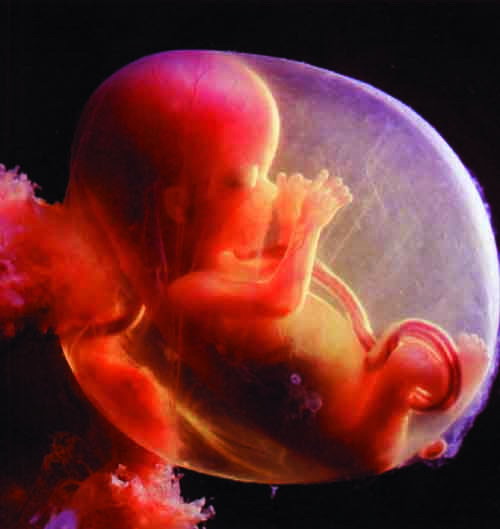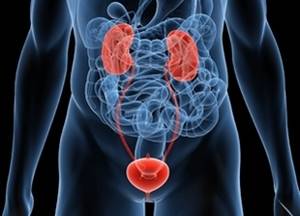Monitoring the movements of the fetus during pregnancy is extremely important for parents-to-be. It acts as an important sign of the baby’s well-being and growth. By observing these movements, parents can gather valuable information about the health of their unborn child.
Tracking fetal movements not only offers comfort but also enables parents to identify any potential issues at an early stage. A decrease in the baby’s movements may indicate distress or a complication that demands urgent medical assistance. Conversely, consistent and healthy patterns of movement signify the baby’s well-being and thriving.
Furthermore, monitoring the movements of the fetus aids in the formation of a connection between parents and their unborn child. This enables them to actively engage in the experience of pregnancy and develop a feeling of closeness with their soon-to-be-born baby. Sensing the kicks, rolls, and hiccups can bring immense joy and sentimentality to anticipating parents.
Parents can monitor fetal movements by observing their baby’s consistent activity patterns. This can be achieved by dedicating specific daily time to concentrate on feeling the baby’s movements, whether it is by lying down on their side or sitting comfortably. By being attentive to the baby’s movements, parents can easily detect any variations or irregularities and inform their healthcare provider.
1st-4th month
During the first to forth month of pregnancy, tracking fetal movements may not be as noticeable or consistent as in later months. This is because the baby is still in the early stages of development and their movements are still very subtle.
At around 4 to 5 weeks gestation, the baby’s heart starts to beat and tiny limb buds begin to form. By the end of the forth month, the baby’s major organs, muscles, and nervous system have started to develop. However, their movements are mostly uncoordinated and reflexive at this stage.
Expectant mothers may start to feel slight flutters or gentle taps in their lower abdomen, but these sensations can easily be mistaken for gas or other bodily sensations. It’s important to note that every pregnancy is different, and some women may not feel any fetal movement during this period.
During the first trimester, the baby’s movements serve an essential purpose in their development. These early movements help to promote healthy muscle and bone growth, stimulate blood flow, and aid in the development of the baby’s nervous system.
While it may be challenging to track fetal movements during the first to forth month, it is crucial for expectant parents to maintain regular prenatal check-ups with their healthcare provider. These check-ups allow healthcare professionals to monitor the baby’s growth and development through ultrasound scans and other tests.
5th month
During the fifth month of pregnancy, expectant parents can look forward to experiencing some exciting moments as their baby continues to grow and develop. By this stage, the baby’s movements become more pronounced and noticeable, providing a sense of joy and reassurance for parents.
At this point, the baby is approximately 10 inches long and weighs around half a pound. Their muscles and bones are developing and strengthening, allowing them to move more freely. As a result, parents may start feeling gentle flutters, kicks, and even somersaults from their little one.
It is important to note that every baby is unique, and their movement patterns may vary. Some babies may be more active during certain times of the day, while others may be more active at night. Parents should pay attention to their baby’s individual patterns and communicate with their healthcare provider if they notice any significant changes or concerns.
Additionally, parents can bond with their baby by gently placing their hands on the abdomen to feel the movements. This can be a special and intimate moment for both parents and the baby.
6th month
During the 6th month of pregnancy, your baby’s movements become more defined and noticeable. As your little one continues to grow and develop, you will start feeling more frequent and stronger kicks, punches, and even somersaults. These movements may startle you at times, but they are a positive sign that your baby is healthy and active.
At this stage, your baby’s movements are becoming more coordinated. They can flex their arms and legs, and their muscles are getting stronger. You may notice that their movements are more rhythmic and follow a pattern. Some babies may even respond to external stimuli, such as loud noises or bright lights, by moving or kicking in response.
It is also common to experience Braxton Hicks contractions during this time. These contractions are usually painless and serve as a practice for labor. You may feel your abdomen tightening and then relaxing, but they should not be regular or increase in intensity.
It’s important to keep track of your baby’s movements during this month. If you notice any significant decrease or change in their movements, it is essential to contact your healthcare provider. They can assess the situation and ensure that everything is progressing well.
7th month
During the 7th month of pregnancy, the baby’s movements become much more pronounced and noticeable. Expectant parents can look forward to feeling stronger kicks and punches as their little one continues to grow and develop.
At this stage, the baby is becoming more active and responsive to external stimuli. They may react to loud noises or sudden movements by kicking or squirming. The baby’s movements may also start to follow a more regular pattern, with periods of increased activity followed by periods of rest.
Parents should continue to track their baby’s movements during this month, paying attention to any changes in frequency or intensity. It is important to note that every baby is different, and there is no set number of movements that is considered “normal.” However, if there is a significant decrease in the baby’s movements or if they stop moving altogether, it is important to contact a healthcare professional immediately.
In addition to feeling the baby’s movements, expectant parents may also be able to see them from the outside. As the baby grows stronger, their kicks and punches may cause visible movements on the mother’s abdomen.
8th month
During the 8th month of pregnancy, the baby’s movements become more pronounced and noticeable. Expectant parents can feel a variety of kicks, punches, and rolls as the baby continues to grow and develop. These movements serve as an important indicator of the baby’s well-being and provide reassurance to parents.
At this stage, the baby is much larger, taking up more space in the womb. As a result, the movements may feel stronger and more forceful. It is common for the baby to have periods of increased activity, especially after meals or when the mother is resting. These bursts of movement can be a source of joy and excitement for parents, as they provide a tangible connection to their growing baby.
In addition to the usual kicks and punches, expectant mothers may also notice a change in the pattern of their baby’s movements. While the baby still moves frequently, there may be more defined periods of activity and rest. It is important to continue monitoring these patterns and report any significant changes to the healthcare provider.
During this month, it is also recommended that expectant parents continue to perform kick counts. This involves tracking the number of movements felt within a certain time frame, usually one to two hours. A decrease in fetal movements could be a sign of distress and should be reported immediately.
9th month
In the 9th month of pregnancy, your baby’s movements may become less frequent but more forceful. This is because your baby is running out of space in the womb as they continue to grow and develop. While the movements may feel different than before, it is still important to track them to ensure your baby’s well-being.
During this stage, your baby’s kicks, punches, and stretches may be more intense, and you may even notice a pattern in their movements. However, if you notice any significant decrease in movement or if your baby’s movements become significantly weaker, it is crucial to contact your healthcare provider immediately.
As your due date approaches, your baby’s movements may also change in position. You may feel more pressure on your bladder or experience discomfort as your baby settles into a head-down position in preparation for birth. Some expectant parents may even notice their baby having hiccups, which can feel like rhythmic movements in the lower abdomen.
It is important to continue monitoring your baby’s movements and report any concerns to your healthcare provider. Remember to stay vigilant and trust your instincts. If something doesn’t feel right or if you have any doubts, seek professional advice. Your healthcare provider will be able to guide you and ensure the well-being of both you and your baby.
Final thoughts and advice for expectant parents
As you eagerly anticipate the arrival of your little one, it is important to remember that every baby is unique and may have their own patterns of movement. While tracking fetal movements is crucial, it is equally important not to panic if there are slight variations from what you expect. However, if you notice any significant changes or a decrease in movement, it is essential to consult with your healthcare provider.
Also, try to establish a routine for monitoring your baby’s movements. Choose a time when your baby is usually active, such as after meals or in the evening, and take note of how long it takes for them to complete a set number of movements. This will help you become familiar with your baby’s individual patterns and detect any deviations.
Additionally, make sure to create a calm and relaxing environment for yourself during these monitoring sessions. Find a comfortable position, play soothing music, or talk gently to your baby. This can enhance the bond between you and your little one while also promoting a sense of calmness.
Keep in mind that each pregnancy is different, and it is crucial to rely on your intuition. If you ever feel worried about your baby’s movements, don’t hesitate to ask for advice from your healthcare professional. They are there to assist you and make sure that both you and your baby are well taken care of.









